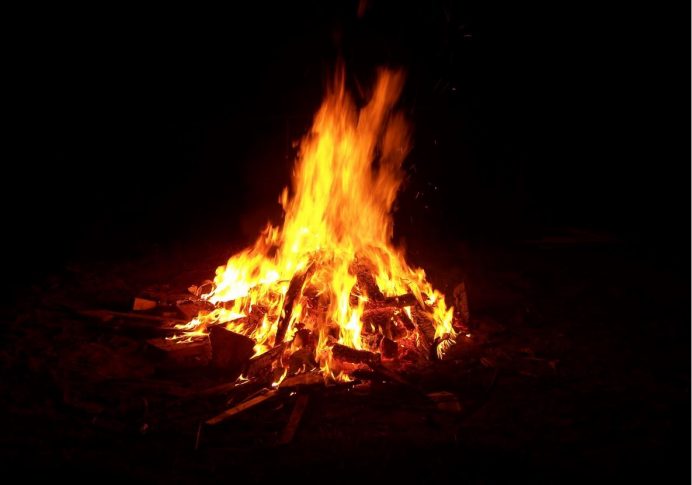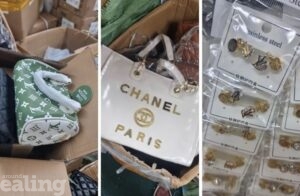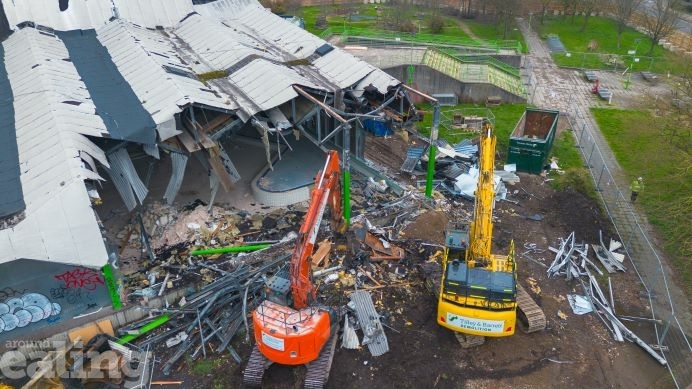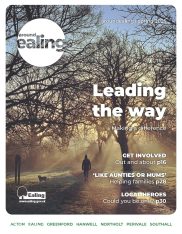This weekend (5-6 November) there is bound to be a host of fireworks exploding in the sky and bonfires being lit. But there are rules around both to avoid your fun becoming a nuisance to others.
It is an offence under national legislation to use fireworks between the hours of 11pm and 7am except on certain special occasions – Diwali, New Year’s Eve, Chinese New Year and Bonfire Night (Saturday, 5 November).
On Bonfire Night, you are allowed to use fireworks until midnight.
Anyone disturbed by the noise of fireworks from a specific address outside of the allowed times can call the council’s noise nuisance team on 020 8825 8111. This service is available:
- Monday to Thursday 9am-2am
- Friday 9am-5am
- Saturday 12noon-5am
- Sunday 2-11pm
Alternatively, you can report it online.
Bonfire etiquette
There are guidelines around bonfires to be mindful of, too. It is not just ‘Guy Fawkes’ effigies that get burned at this time of year. Throughout autumn, people tend to light bonfires to burn garden waste.
Smoke from bonfires can cause severe distress to sufferers of respiratory conditions such as asthma, and other diseases, and can be a nuisance to neighbours drying laundry outside or enjoying their gardens.
There are no laws against having a bonfire, but there are laws for the nuisance they can cause if prejudicial to health or deemed a regular nuisance to the neighbourhood. Offenders can be fined £5,000 (or £20,000 for industrial, trade or business premises under the Clean Air Act).
So, before lighting a fire in the open, it is best to observe the following guidelines:
- Check weather conditions and wind direction so that smoke and ash will be carried away from neighbours’ windows and gardens, and make sure that there is no laundry hanging in adjoining gardens
- Only burn dry, natural and untreated materials – and do not burn oily rags, rubber and other man-made materials
- Do not leave your fire unattended or smouldering for long periods, and hose it down until the bonfire is cold before you leave it
- Advise neighbours before you light a bonfire
- Site your bonfire well away from trees, fences and windows, avoid windy days, and have a hosepipe or buckets of water ready nearby
- Rake ashes into the soil when cold, picking out larger pieces of charcoal first.
To report concerns about air pollution, you can call the council’s response team on 020 8825 8111.
A Cleaner Air Borough
Ealing Council was awarded the ‘Cleaner Air Borough’ (CAB) accreditation by the Mayor of London recently following a range of initiatives designed to monitor and reduce pollution in the borough.
All London boroughs are required to monitor air quality in their areas and take actions to improve it. They have to report on their progress every year. The CAB status is only given to boroughs that can prove they are effectively tackling the issue.
Much of Ealing’s pollution comes from its geographical location, with London and the south east generally suffering from poorer air quality than the rest of the country. However, its proximity to major roads such as the A40, A4020 and A406, the impact of diesel trains travelling through the borough plus local industrial sites also add to its problems, some of which can be addressed at a borough-level and some of which cannot.
The CAB accreditation recognises that many air quality issues are outside of the council’s influence, so it is not a measure of overall air quality. Rather it recognises how seriously the council takes the problem and gives credit for its achievements in making a difference where it can.
Councillor Bassam Mahfouz, cabinet member for transport, environment and leisure, said: “The CAB accreditation recognises the work that we are doing to make the borough cleaner and safer for local people. Pollution is a silent killer and has a devastating effect on health, especially for children. We take the problem very seriously and are using a range of measures to tackle it.”
For more information on the Cleaner Air Borough accreditation, go to www.london.gov.uk/airquality







